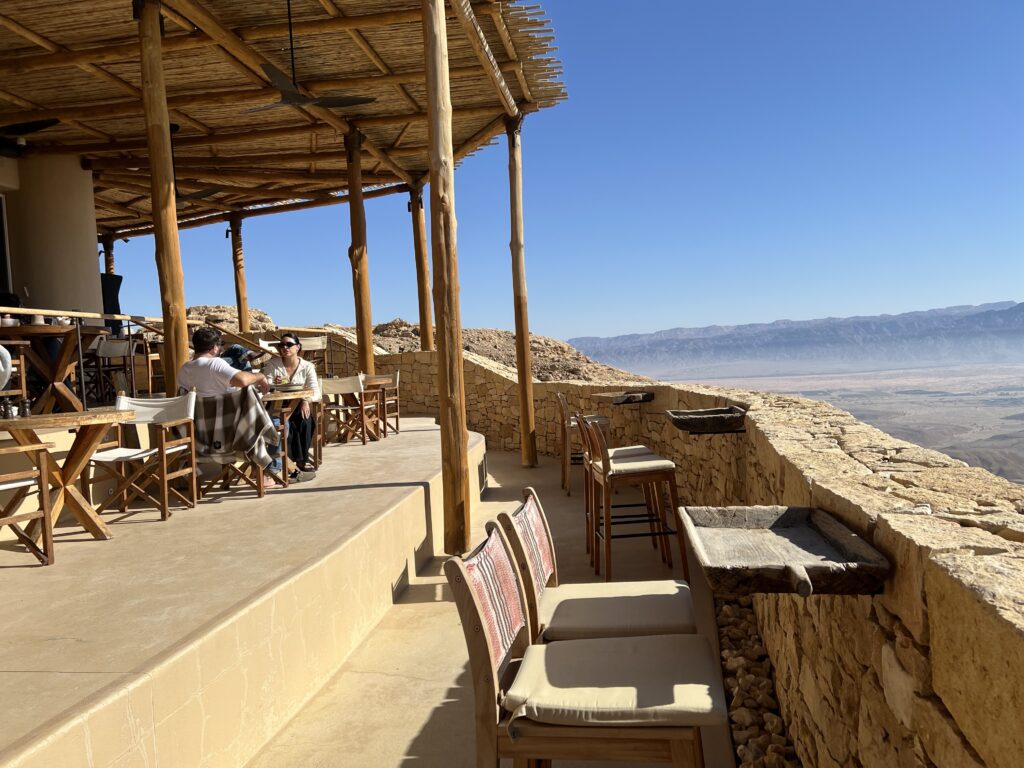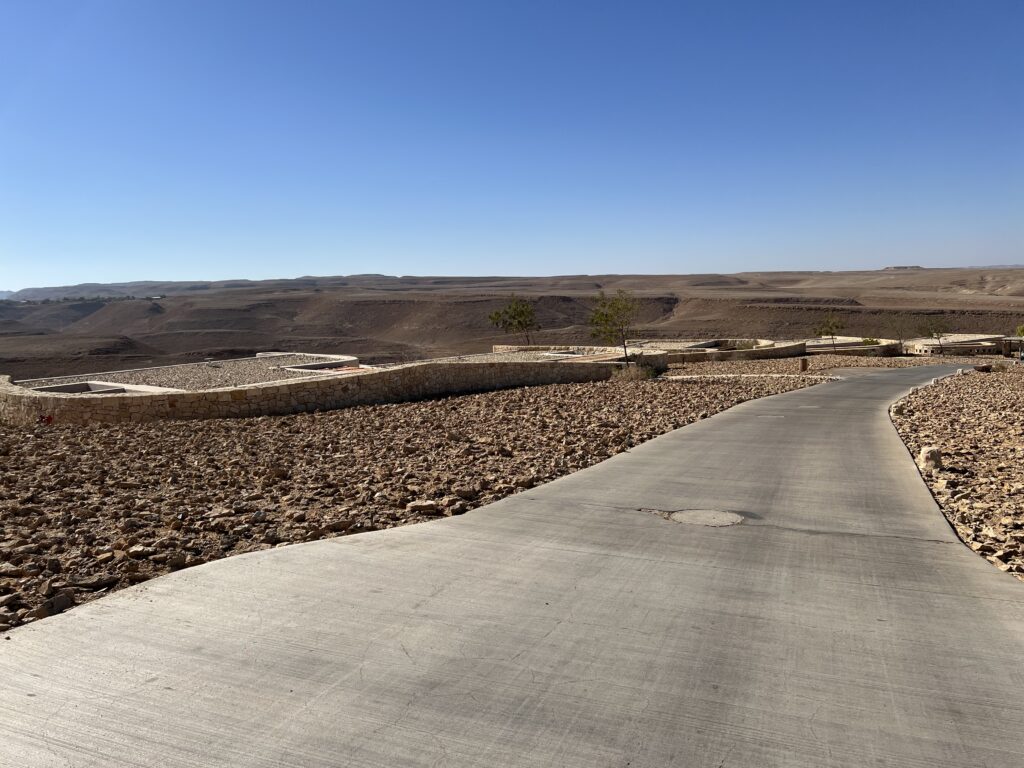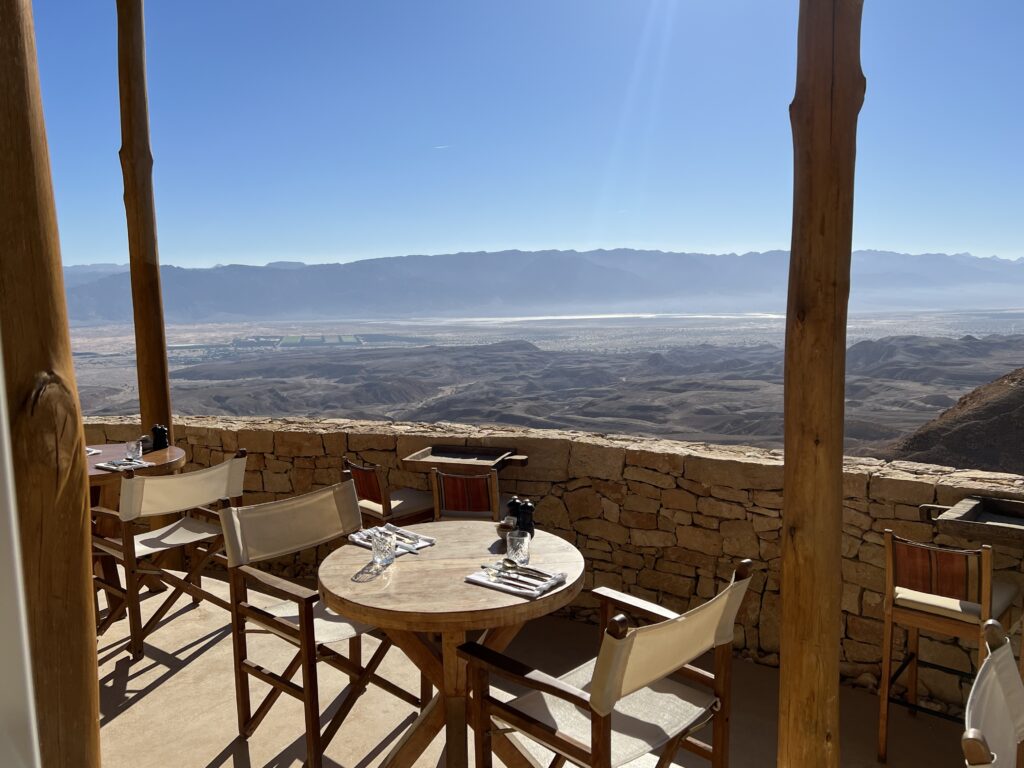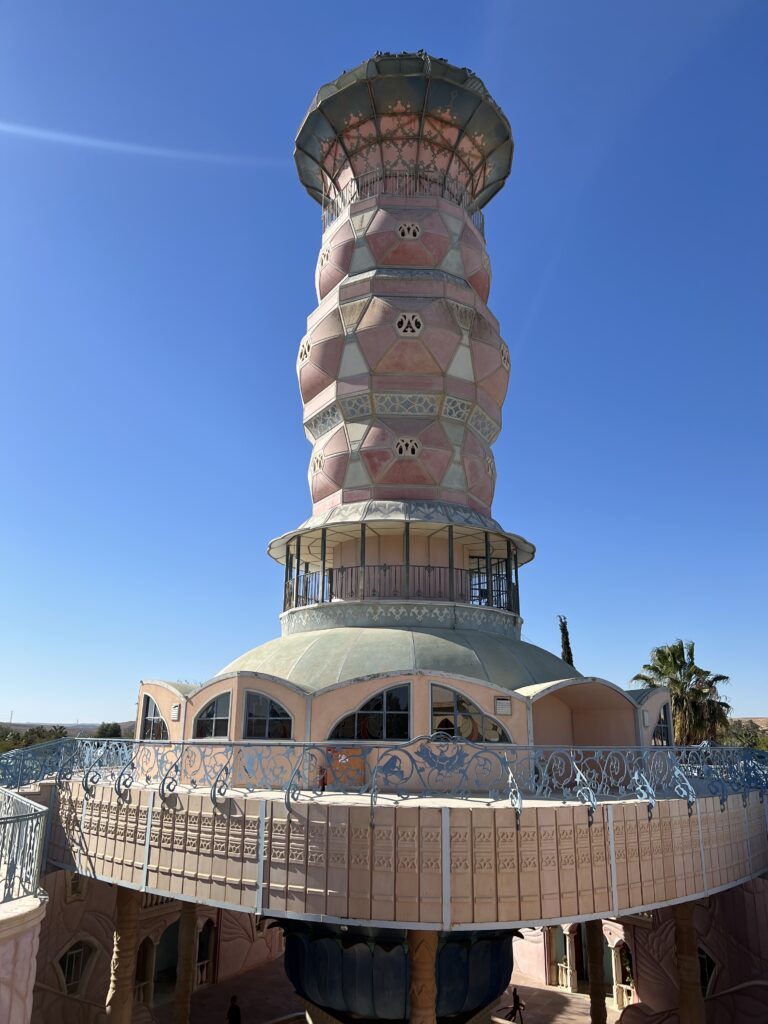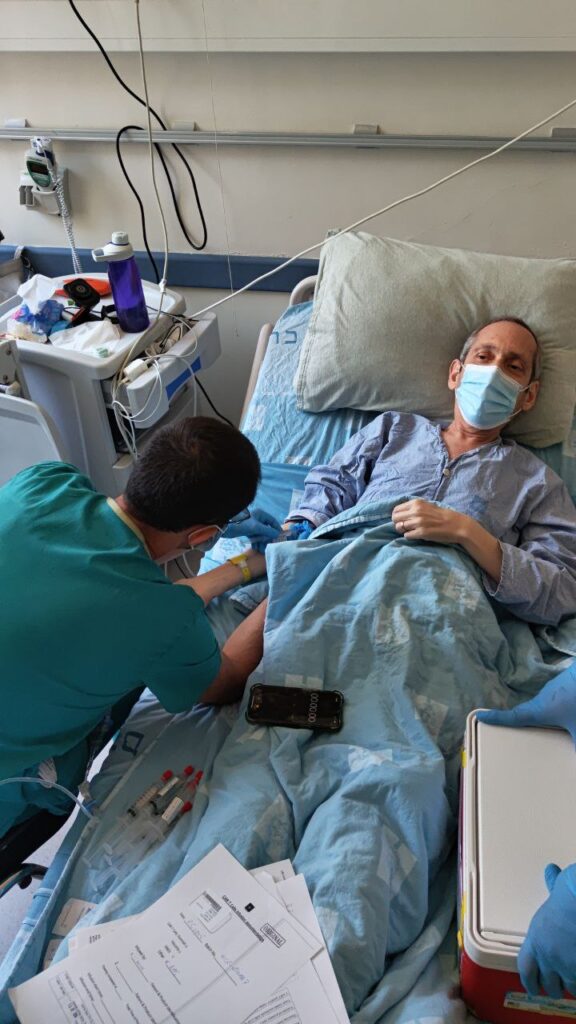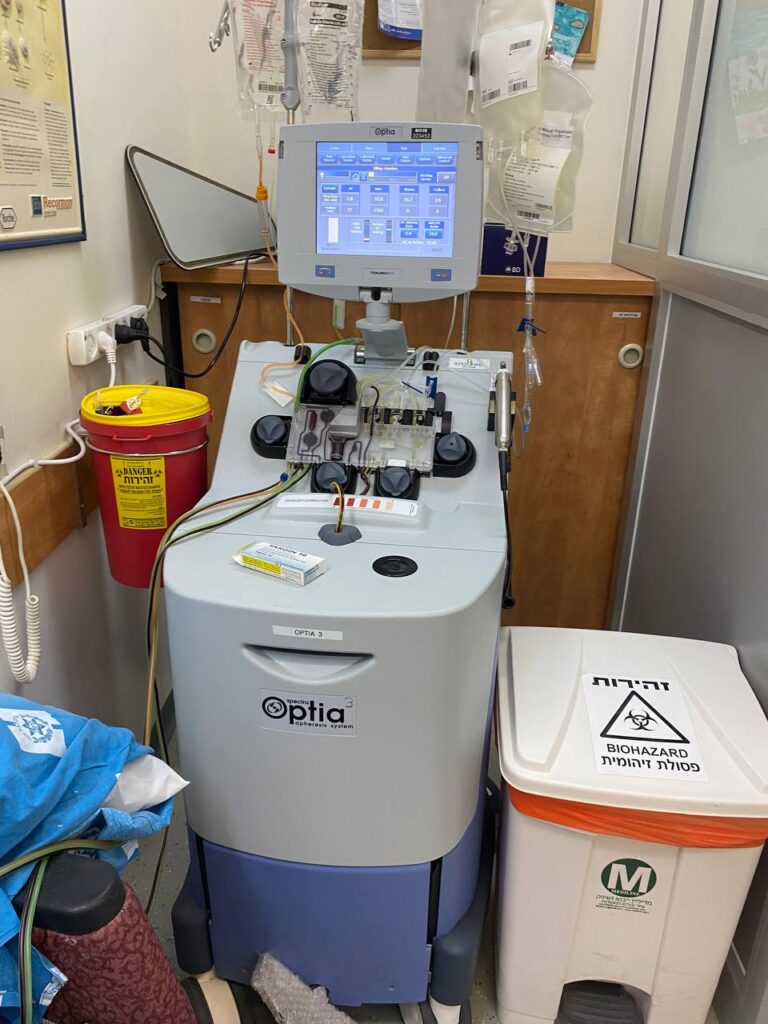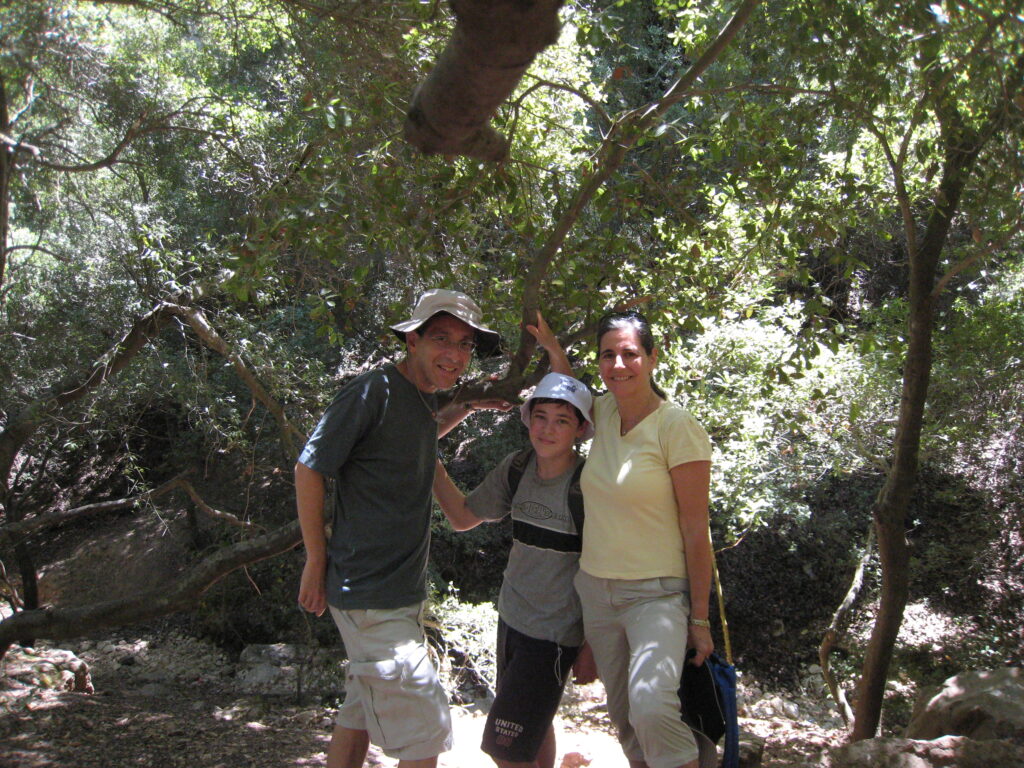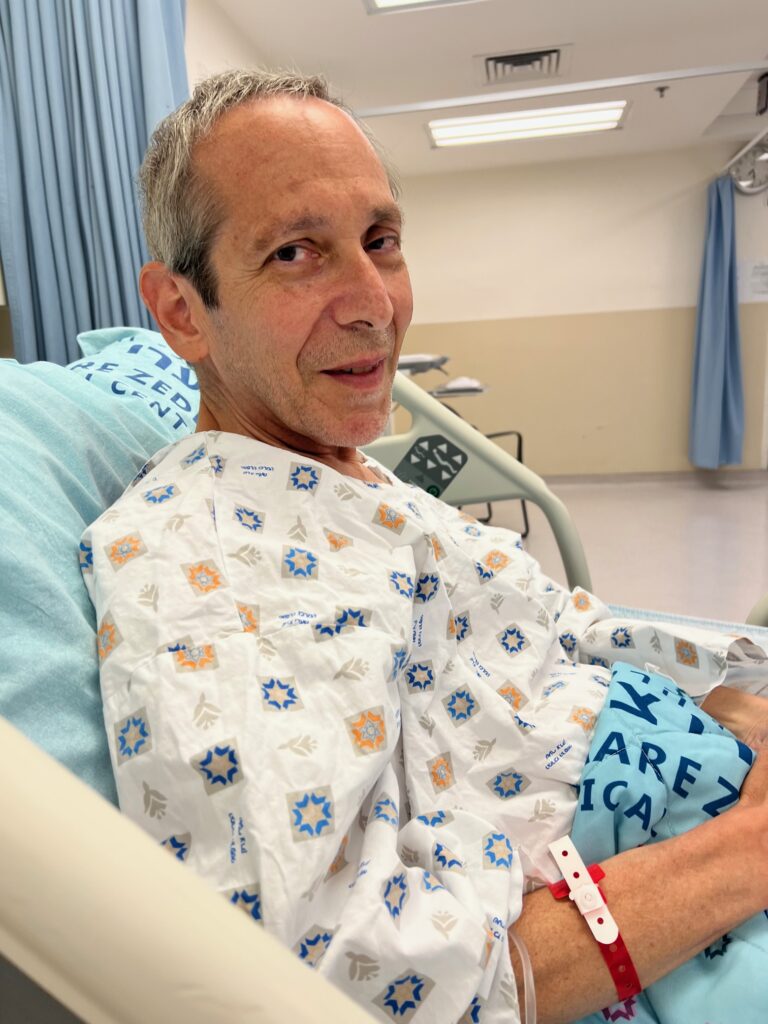“Are you celebrating anything special?” Eran, our driver at the Six Senses Shaharut resort in Israel’s Arava desert, asked as he loaded our luggage onto one of the electric golf carts that are ubiquitous at this luxury property set in the middle of nowhere.
For some reason, I tried to answer him in Hebrew. “Ani kimat lo po,” I said, which means literally “I’m almost not here.” In my Hebrew haste, I had left out the verb, the grammatical tense and any meaningful context.
“You mean, you almost had to cancel?” Eran asked, confused.
“No,” I replied, this time mercifully in English. “What I mean is, I almost died. Because of cancer. But a miracle cure knocked out the cancer, so we’ve come to Shaharut to celebrate being alive.”
Eran’s face broke into an ear-to-ear smile. “Walla,” he crooned, using an Arabic expression-turned-Israeli-slang that’s best translated as “Wow.”
We had driven the four-and-a-half hours from Jerusalem to what is undoubtedly Israel’s ritziest getaway hotel property, with its 60 rooms set on a hilltop between deep wadis and high cliffs. (Guests fancier than us sometimes helicopter in.)
My wife, Jody, and I had been following the story of how Israel’s first Six Senses property came to be and had been keen to visit when the resort finally opened in 2021 after Covid delays, but it always seemed too expensive. We needed an excuse, something to make such an extravagance like this worthwhile. Now we had one.
Six Senses is a high-end chain owned by the IHG hotel group. There are 27 Six Senses resorts around the world, from Saudi Arabia to Bhutan, Thailand to Ibiza, all emphasizing wellness and sustainable luxury. More are being built.
Israeli businessman Ronny Douek had the idea of bringing the Six Senses sensibility to Israel. Douek is a well-known social entrepreneur whose non-profit ventures include Zionism 2000, founded following the assassination of Prime Minister Yitzhak Rabin. He served as the chairman of the Israel Anti-Drug Authority and, in 2025, received the Israel Prize for Lifetime Achievement.
His socially oriented background might explain in part one way Shaharut is different than other Six Senses properties around the world: Much of the staff are recently released IDF soldiers participating in a program called “Meudefet,” a job board which offers six months of employment in minimum wage jobs to applicants who don’t have much job history, supplemented by a substantial grant from Bituach Leumi (Israeli social security).
While the younger cohort gives the resort an Israeli casual vibe, the staff receives ample training and made sure we had whatever we needed.
To build Six Senses Shaharut, Douek envisioned a hotel with almost no visible footprint. The rooms and suites are set back and below the gravel walkways that stretch along the top of the desert landscape. The look, Douek has said, was to recreate the feel of a reclaimed Nabatean village – well, one that cost a reported $100 million in design and construction.
You rarely see anyone walking around; guests are either in their rooms, at the two heated pools (one outdoor, one freshwater indoor) or at Midian, Shaharut’s chef restaurant. You can call reception and order a golf cart to take you to morning yoga or a massage appointment. Your personal car is tucked away in a private parking lot hidden from the rest of the property.
The unpopulated pleasures of the resort are highlighted at night. With just subtle lighting along the paths, there is virtually no light pollution, and the stars shine as brightly as if you were camping somewhere far from civilization along the Israel Trail.
Indeed, Six Senses Shaharut is so isolated that, although we could see the lights from Eilat at night, what might be a 20-minute drive as the crow flies requires an hour-and-ten-minutes circumventing the aforementioned wadis to get there.
That led us to a decision that’s not our usual travel style: We never left the property. No hiking. No exploring nearby Timna National Park. After a sumptuous breakfast, with the usual pastries, cheese, lox, eggs and pancakes (plus the surprising addition of three types of mini smoothies), we spent our days at the extra-large jacuzzi or heating up in the Turkish hamam.
This “review” is a tad different than most you’ll read, as we were NOT guests of the hotel. While I have little negative to report, I was slightly disappointed by the chef’s restaurant. Not about the food – it was excellent – but my portion of lamb chop was so huge, I left with quite the tummy ache. Asking for a doggie bag didn’t seem to fit the resort’s style.
A second restaurant, the more casual Jamilla bar, featured street food offerings, which were good but wouldn’t have been out of place in Jerusalem’s Mahane Yehuda.
But I feel guilty quibbling even a little. We weren’t there to overindulge on meat. We were there to celebrate life, and by staying put and relaxing, we took full advantage of the introspection.
There are a variety of rooms available – all with heavy teakwood doors and large bathtubs big enough for two. The rooms are designed with calming pastels and local artwork. Some rooms have panoramic desert views; others sport private pools.
The resort is located near two hippy encampments: the moshav of Shaharut just down the road, where some of the employees live, and Ne’ot Semedar, which offers tours of its artist’s complex (festooned around a natural desert cooling system shaped like a giant phallus) and the kibbutz’s organic winery. The eponymous Semedar wine, made with 22 herbs and spices (thinking of you, Colonel Sanders), was so good, we had to buy a bottle.
Shaharut was clearly a splurge, but it felt entirely appropriate to mark, like Harry Potter’s lightning scar, my new status as a real-life “boy who lived,” one who successfully fought off the Voldemort in his blood.
I first “reviewed” Six Senses Shaharut for The Jerusalem Post.
Pictures: credit – Brian Blum
{ 0 comments }
